June 27, 2025 | 16:07 GMT +7
June 27, 2025 | 16:07 GMT +7
Hotline: 0913.378.918
June 27, 2025 | 16:07 GMT +7
Hotline: 0913.378.918
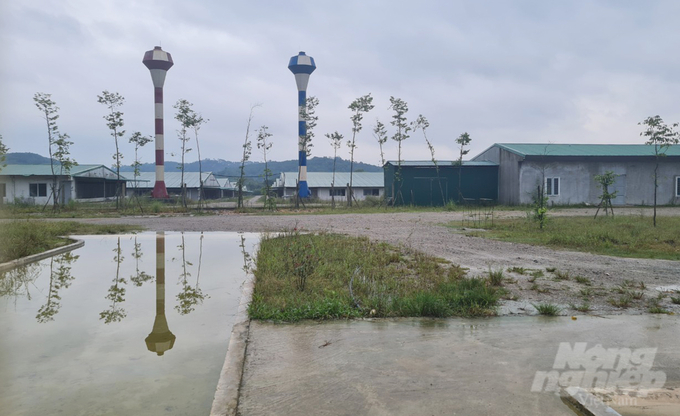
It has been more than a year since Nghe An People's Committee issued the sanctioning decision. Up to now, Phuc Hoa high-tech pig farming complex has still not completed the missing contents. Photo: Viet Khanh.
In 2022, a 7 ha high-tech pig farming complex sprung up in Nghi Cong Nam commune (Nghi Loc district, Nghe An), which was a surprise even to the local people. After asking around, it was revealed that Phuc Hoa Agriculture Co., Ltd was the company investing in this “famous” project.
At first, this project received support from many related units, including Nghe An Department of Natural Resources and Environment. From this fulcrum, the enterprise planned a location for implementation in hamlet 6, Nghi Cong Nam commune, where the previous status was a production forest area.
Accepting deforestation and sacrificing the environment to serve pig farming, a particularly sensitive type of farming, would certainly spark controversy. The people’s worries were multiplied considering this complex was located right at the source of the river, not too far from Tam Toa Temple, where Uy Minh Vuong Ly Nhat Quang is worshiped. The temple, recognized as a provincial historical relic in 2012, greatly influenced the culture and spiritual life of the people in the region.
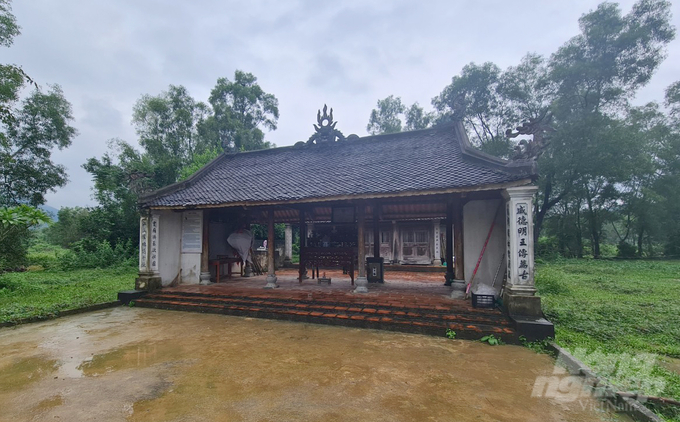
The location of the complex is not too far from Tam Toa Temple, a provincial historical relic. Photo: Viet Khanh.
Considering these sensitive factors, Nghe An authorities and relevant units should have carefully considered and been especially cautious in the appraisal stage before the Phuc Hoa high-tech pig farming complex was formed.
In reality, the supervision and monitoring work was not thorough. Riding the momentum, the investor disregarded regulations and blatantly overstepped boundaries, raising thousands of pigs even before acquiring a license. The company feasted on the benefits, while the government and the people bore the consequences.
The herd then became too large, the amount of waste was too much, but the treatment was not guaranteed, which led to serious pollution. Unable to bear it, since the beginning of 2022, the people of Nghi Cong Nam commune have repeatedly petitioned and proposed to urgently relocate this scandalous complex to another place, but to no avail.
It was not until September 2022 when the wave of reaction from the community reached its peak that relevant parties agitatedly got involved. It all dawned on them that the high-tech complex was just a false name and that the business was operating illegally without permission.
Based on the fact that "having no environmental permit for projects or facilities subject to environmental permits according to regulations under the licensing authority of the provincial People's Committee," the Phuc Hoa high-tech pig farming complex was administratively fined VND 320 million by Nghe An People's Committee (Decision No. 161/QD-XPHC dated September 28, 2022). The complex was also suspended from having waste-generating activities (pig farming activities) for 4.5 months.
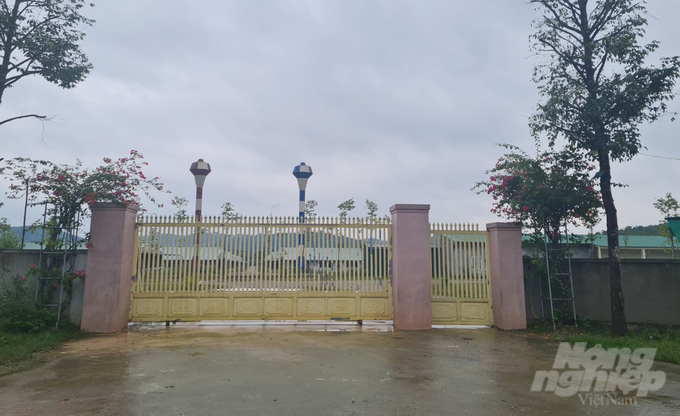
While the procedure was still incomplete, the investor blatantly brought thousands of pigs into the farm, paying no mind to the anxiety and insecurity of the people of Nghi Cong Nam commune. Photo: Viet Khanh.
Instead of implementing the sanctioning decision as soon as it took effect, the investor used the excuse that "the remaining pigs had not been sold yet", so this was continuously delayed. On December 19, 2022, Nghe An Department of Natural Resources and Environment issued a document requesting Phuc Hoa Agricultural Co., Ltd to sell all existing pigs before December 26, 2022.
Realizing that the situation had not changed, on January 13, 2023, the Department of Natural Resources and Environment continued to issue an urgent dispatch, but the result remained the same. Up to this point, after more than 1 year since the People's Committee of Nghe An province issued the sanctioning decision, the work of completing the procedure in general seems to remain vague.
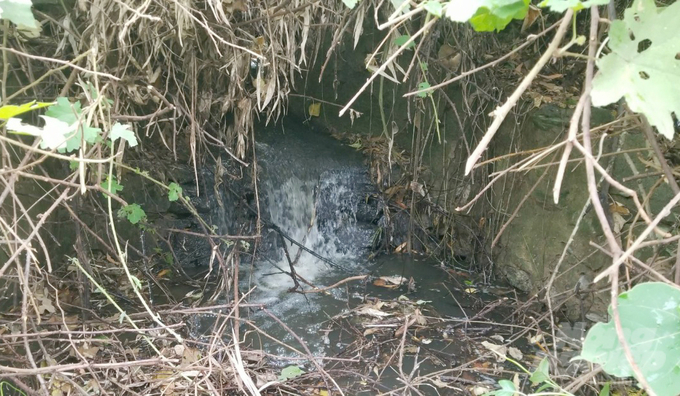
The surrounding environment is seriously polluted due to the waste discharge process of the Phuc Hoa high-tech pig farming complex. Photo: Viet Khanh.
"After the penalty decision, the investor has implemented a number of pollution remediation activities but has not completed them, and not submitting for re-evaluation of criteria. As things stand, it is obvious that the company will naturally have to stop all operations. The project involves 8 relevant departments, branches, and units, with many issues that need to be resolved (land, resources, military, culture). Considering the situation, it would be difficult for this company to operate again," said Ngo Tri Chinh, Chairman of the People's Committee of Nghi Cong Nam commune.
Translated by Samuel Pham
![Lifting the IUU 'yellow card': [2] Thorough preparation for the EC inspection](https://t.ex-cdn.com/nongnghiepmoitruong.vn/608w/files/huytd/2025/06/27/3109-1-005033_548.jpg)
(VAN) Ahead of the fifth inspection by the EC, Khanh Hoa and Phu Yen have controlled fishing vessels, catch volumes at ports, and VMS equipment to meet the requirements for lifting the IUU 'yellow card.'
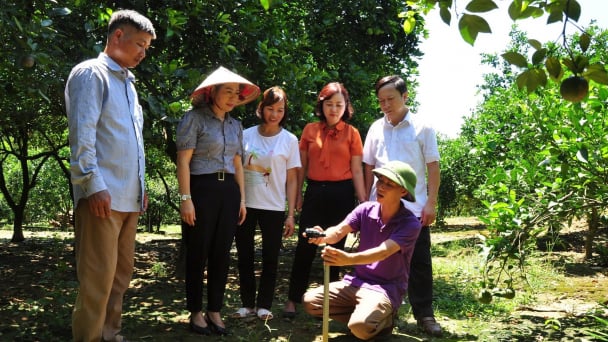
(VAN) Since the implementation of Resolution No. 03 by the People's Council of Tuyen Quang province, 282 organizations and individuals have been supported with advanced, water-saving irrigation systems, covering a total area of 765 hectares.
![Lifting the IUU 'yellow card': [1] Fisherpeople join forces](https://t.ex-cdn.com/nongnghiepmoitruong.vn/608w/files/huyenvt (e)/2025/06/26/0551-4-205700_585.jpg)
(VAN) To lift the EC's 'yellow card,' fisherpeople have significantly raised their awareness in complying with legal regulations in marine fishing activities.
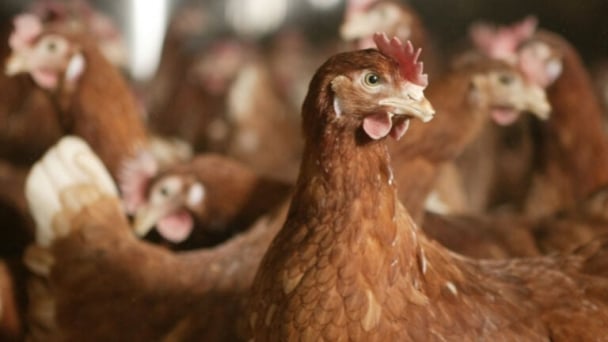
(VAN) Research has shown that Hy-Line brown hens may be better suited for cage-free production based on overall greater egg production and other quality metrics.
![Turning wind and rain into action: [9] Digitizing hydrometeorological data in response to climate change](https://t.ex-cdn.com/nongnghiepmoitruong.vn/608w/files/news/2025/06/17/z6704423696987_15fd32ffc26d590d204d520c9dac6786-nongnghiep-165943.jpg)
(VAN) Farmers have begun accessing hydrometeorological applications to adjust their cropping schedules, aiming to ensure productivity and adapt to climate change.
![Turning wind and rain into action: [8] Real-time salinity detection and early warning technology](https://t.ex-cdn.com/nongnghiepmoitruong.vn/608w/files/news/2025/06/17/z6704423696987_15fd32ffc26d590d204d520c9dac6786-nongnghiep-151127.jpg)
(VAN) Thanks to the integration of modern hydrological-hydraulic models, remote sensing technologies, and artificial intelligence, the accuracy of hydrological forecasting has significantly improved.
![Turning wind and rain into action: [7] Early disaster warnings help marine farmers minimize losses](https://t.ex-cdn.com/nongnghiepmoitruong.vn/608w/files/news/2025/06/17/z6704423696987_15fd32ffc26d590d204d520c9dac6786-nongnghiep-142942.jpg)
(VAN) In recent years, thanks to early disaster warnings and forecasting, marine farmers in Khanh Hoa province have been able to reduce risks and losses, thereby improving production efficiency.